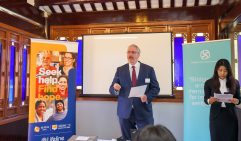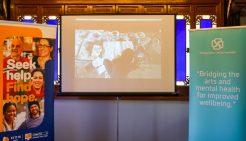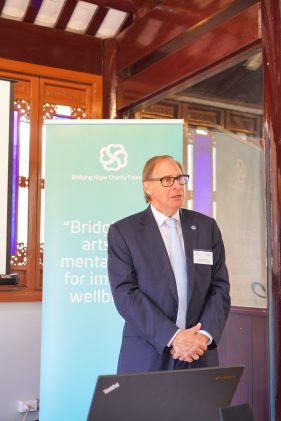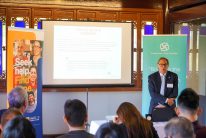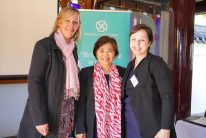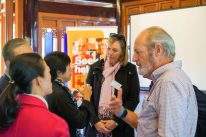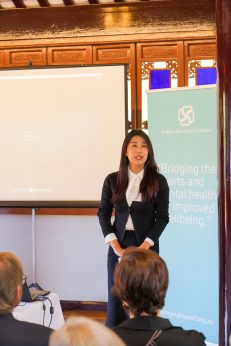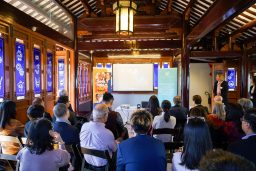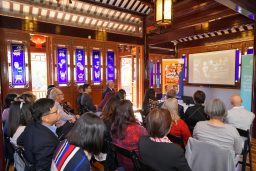Bridging Hope Charity Foundation and Lifeline Australia Jointly Launch the Chinese Language Lifeline Feasibility Study Report
On 23 May 2018, Bridging Hope Charity Foundation and Lifeline Australia launched the results of a study commissioned to examine the support needs of Chinese Australians, in the Chinese Garden of Friendship, Darling Harbour. The ground-breaking report aims to raise awareness of the need for services within the Chinese Australian community that address issues of mental health and wellbeing.

The report, commissioned as part of the three-year $450,000 partnership between Bridging Hope Charity Foundation and Lifeline Australia, reveals that there is a need for mental health services that cater specifically to Chinese Australians within the Greater Sydney region, reflecting this region housing the highest population density of Chinese Australians. The study highlights the broader need within the Chinese Australian community for greater mental health and wellbeing supports from social networks and other services.
These results provide a platform for the partnership between Lifeline and Bridging Hope Charity Foundation to seek better supports for Chinese Australians and raise funds for services and programs in collaboration.
Stephen Fitzpatrick, Director, Bridging Hope Charity Foundation, said: “The Chinese community in Australia is fast growing in both size and diversity. We hope that the results of this report will drive the development of culturally appropriate services that address the barriers that may prevent someone from asking for help at the point of crisis and better still, encourage them to pick up the phone before they get to that point.”
Alan Woodward, Executive Director, Lifeline Research Foundation, said: “The research is a major step forward for Lifeline in meeting the changing needs of a culturally diverse Australia. We are now sure that there is support within the community for services to reflect a Chinese cultural understanding of social norms and language skills and be confidential and anonymous as well as flexible.”
“Australia has one of the world’s highest proportions of migrants. Research has found that 10% of calls to Lifeline each year are from people who state that English is not their first language. At Lifeline, we need to make sure that everyone has equal access to the crisis support, regardless of race, religion, and cultural background.”
The research project has been a critical, strategic step towards seeking broad support for and delivering tailored crisis services for Chinese Australians. The six-month research project involved a series of components in and around Sydney including: an online survey in both English and Simplified Chinese, community engagement activities, a review of existing research on mental health needs of the Chinse Australian community, mapping existing programs and services for the Chinese Australia community, and focus group consultations. The project has received massive community support with over 2,000 valid survey results received.
The Chinese Lifeline Feasibility Study Report was inaugurally launched at the 2018 International Association for Suicide Prevention (IASP) Asia Pacific Conference (2-5 May 2018) in New Zealand.






